Popular Drinks and Adrenal Fatigue: The Best and the Worst Options
Beverages are an important part of fatigue recovery plan. Learn what to drink and what not to drink to get better from adrenal fatigue.
Many adrenal fatigue sufferers fail to consider how beverages can impact their condition. And yet, these beverages can play a crucial role in aiding or inhibiting recovery.The fact is that far too many people are unwittingly harming their adrenals by consuming liquids that only serve to perpetuate the cycle of stress that leads to severe fatigue.Because of that, it is vitally important to learn more about what you should and should not be drinking if you are dealing with fatigue.
How Beverages Affect The Fatigue Recovery Process
Here’s the problem most adrenal fatigue sufferers face: as the result of lifestyle choices and life events, the adrenals gradually become weakened to the point where they can no longer properly fulfill their natural role of providing the hormones necessary for responding to stress. When that happens, the entire balance of your physiology is upset. Your body then experiences a wide range of reactions as it struggles to cope with this disruption of its regulatory hormones.
As a result, you can suffer a variety of negative effects as your body struggles to maintain its ability to properly utilize carbohydrates, fats, and proteins by converting them into the very energy you need for all your daily activities. The hormones that regulate your blood sugar levels can become unreliable, causing a roller coaster wave of energy highs and lows throughout each day. Digestion and circulation can be disrupted as well.
In short, your entire body begins to become a jumbled mass of confused signals, as each system desperately seeks some level of equilibrium and relief from the ever-rising levels of stress. That is, in itself, a stressful state that only serves to further tax the adrenals. To counter it, you need to make changes that will aid your adrenals by reducing the stressors that weaken them and prevent them from properly doing their job. A healthy diet is but one lifestyle change that can aid in that process. Exercise and other stress-reducing changes are important too.
The liquids you consume, however, play an absolutely critical role in this healing process, and must not be neglected. After all, even those of us who eat six or more meals a day still manage to consume an even greater number of drinks in that same time period. You may eat every few hours, but chances are that you’re drinking one type of beverage or another on an even more frequent basis. Unless those beverages are conducive to good adrenal health, you may actually be hindering your own recovery program.
How to Choose What to Drink? Follow the Basics…
To avoid that hindrance, you need to ensure that the liquids you put in your body are every bit as conducive to adrenal recovery as the foods you select and those other lifestyle changes you’ve painstakingly made. There are some simple rules that you need to know if you are to understand why some beverages are superior to others, and they’re all based upon these simple traits common to hypoadrenia sufferers:
- Adrenal fatigue patients tend to rely on the stimulation provided by caffeinated and sugary drinks to give them the energy they lack
- That caffeine and sugar eventually wear off, but not before their stimulatory effects have added further stress to the adrenals
- In the aftermath, the adrenals are even more taxed than before
- The end result is greater fatigue, which then causes the patient to again turn to those stimulants
Number 1 Rule:
Avoid caffeine and sugars – and other liquids that disrupt your adrenals - wherever possible.
Your first priority must be the removal of all liquid stressors from your dietary routine. So, what types of liquids are we suggesting that you rely on instead? Don’t despair, because you are still left with a wide variety of options from which to choose.
The Best Choices…
Here is a look at some of the choices you can make when it comes to selecting beverages to complement and enhance your adrenal fatigue recovery plan.
The Tea Option
For those with weakened adrenals, there is no question that green tea remains a better choice than coffee or traditional black tea. Not only does it contain a smaller amount of caffeine, but it more than makes up for it by providing an incredible array of nutrients and antioxidants. It’s also one of the few beverages on our list that can be consumed at almost any temperature.
A wide variety of other teas can also be consumed without fear of disrupting the adrenals. These include the many different types of herbal teas, twig tea for those who want a more coffee-like consistency, and even barley tea. Each provides a safe, healthy alternative to the traditional coffee-based drinks so many people consume on a daily basis.
Vegetable juices
These juice beverages make the list for a number of reasons. They are, of course, extremely nutritious, and thus aid the body in many different ways. More than that, though, they are tasty and extremely easy to make. The fact is that you can create a juice from virtually any vegetable or combination of vegetables. All you need is a juicer and a few minutes to prepare the drink.
Keep in mind, however, that moderation is important too. Because any juice can impact blood sugar levels, you always want to limit your intake of even vegetable juice to a half-dozen ounces or less at a time. You can also reduce the impact on your
blood sugar by lightly salting the juice, and eating it with some sort of healthy food. And if you opt instead to buy your vegetable juices at the store, be sure that you read the labels so that you can avoid drinks that contain corn syrup and sugar.
Milk and Whey
The ubject of milk is one that is somewhat controversial when it comes to adrenal fatigue. While there are many who advise against drinking cow’s milk due to the high rate of lactose intolerance in the population, others point to the protein contained in this liquid and recommend it to those whose systems can properly digest it. It is true that milk contains some sugar that can elevate blood sugar levels, so its choice as a beverage is questionable.
Goat’s milk and rice milk are often pointed to as superior choices for those who like the taste of milk and who want it in their diets. The former is packed with nutrients, and has lower levels of lactose than the milk that comes from cows. The latter choice lacks most of that nutrition, but can be found in a form that is fortified with calcium. It too lacks the lactose that can cause so many problems for anyone with that sensitivity.
In addition, soy milk is a vegetable alternative to traditional milk products, and can be found in almost any health store and most grocery stores as well. It contains more protein than its soy milk rival, and can be used in cereals or as an ingredient in things like ice cream. Carob is often selected as an alternative to chocolate. It contains no stimulants, evens out blood sugar levels, and the powder can be used to make a drink that can taste like anything from hot chocolate to chocolate milk – but without the adrenal threat posed by chocolate.
Finally, don’t forget whey. For many adrenal fatigue patients, a daily whey protein shake is an essential part of the diet. Most powders contain around 20 grams of whey protein and 130 calories per scoop. When added to water, juice, or any other beverage you prefer, it can be an excellent way to get that protein your body needs without surpassing your calorie expectations. If, for any reason, you find that you’re sensitive to whey, there are other proteins available that can meet this same need.
Fruit Juices
For hypoadrenia patients, fruit juice is a complicated drink. While most taste extremely good, and offer a variety of vitamins and other nutrients, the high sugar content can play havoc with blood sugar levels. This is especially true of those that come in a more concentrated form. The best suggestion is to approach fruit juices just as you would fruit: avoid it in the morning altogether - since that is one point in the day when you are almost guaranteed to see blood sugar spikes if you consume fruit in any form - and use caution at all other times.
Water
And then there’s the big one that most people never consider: water. It actually seems like the topic of water should be the easiest, right? After all, everyone in the scientific and medical communities agrees that we all need to consume a reasonable amount of water each day. Sadly, for adrenal sufferers nothing is ever quite that simple.
First of all, we need to recognize that the water in many cities is often questionable both in terms of safety and taste. Depending on the area, city water can contain everything from bacteria to parasites and toxic chemicals and metals. Often times, it also has a high acidic content as well. This, more than anything else, has contributed to the increasingly high sales of bottled water in many areas of the Western World. Before relying on your city’s water, you need to research it and perhaps run pH and chlorine tests for yourself.
Beyond the obvious safety issues, however, we need to recognize that water is just an innate problem for anyone with weakened adrenals. This is due to the problem most of these patients have when it comes to their body’s ability to regulate its own water balance. Most hypoadrenia sufferers have difficulty finding that perfect balance between dehydration and proper hydration due to the way water upsets their internal balance of potassium and sodium. This results in them feeling even sicker as they drink water.
For many patients, the answer to this imbalance is to add sodium to the water. Of course, we’re not talking about drinking salt water, per se, but merely adding a touch of salt to each glass of water to bolster the sodium and prevent any imbalance. In fact, many experts recommend a glass of lightly salted water in the morning and then another in the afternoon, since it has been demonstrated in some studies to help prevent that mid-afternoon crash that so many hypoadrenia patients experience.
…And the Worst
Obviously, those hypoadrenia-friendly drinks are but part of this tale. You also need to know which drinks to avoid, and why. The good news here is that the list of liquids you should avoid is much smaller than those you can safely drink – though you may be somewhat dismayed to find some of your current favorites listed. Don’t be discouraged. Everyone who has ever had to fight his or her way back from adrenal fatigue has, at one point or another, had to make these kinds of tough sacrifices. In the end, you’ll discover that the long-term health benefits are worth the minor inconvenience.
Caffeine
Yes, we began our discussion of drinks by mentioning caffeine, but it is such an important stressor that it warrants even more examination. While we discussed coffee, it is important to remind ourselves that any discussion of the dangers of caffeine must also include mention of chocolate. Hot cocoa and chocolate-flavored milk offer nothing more than a combination of sugars and caffeine just waiting to wreak havoc on your adrenals. Caffeine is, quite simply, one of the biggest beverage dangers your adrenals can face.
Coffee is no better. Yes, it is one of the most popular beverages in the United States and much of the West, but that doesn’t make it any less dangerous. Along with black tea, its high concentration of caffeine can over-stimulate the adrenal glands, making them even more stressed than normal. That can leave you feeling even more exhausted when the stimulation ends, which only increases the demands on the adrenals, leading to even greater stress. It’s a vicious cycle that you need to break if you want to fully recover from your fatigue.
Soft Drinks
Even sugar-free sodas are not safe for people suffering from this condition. The artificial sweeteners they use might not contain any calories, but they still have a simulative effect similar to sugars. Moreover, most of these drinks contain caffeine as well, so that alone makes them a dangerous option for you. Besides, evidence continues to mount suggesting that those artificial compounds have additional health risks for those who consume them. Leave them on the store shelf.
Alcohol
We’ve deliberately saved the worst for last. As popular as alcohol is in our culture, it is something that no one with this condition should ever drink. For more than half a century, scientists have known that people with weakened adrenals are almost literally drinking poison when they consume alcohol. This is due to one simple fact: alcohol’s high level of refinement enables it to almost immediately enter your cells and demand greater energy production. That forces your own body to steal nutrients from you at the cellular level to deal with the dramatic fluctuations in your blood sugar levels. If you’re serious about getting healthy, skip alcohol altogether.
Drink to Success!
Yes, there are a great many things on this list that most people simply won’t want to hear. After all, none of us want to be told that your health depends upon us giving up something that we love. For hypoadrenia patients, however, there is little choice. There are no pills that you can take to suddenly bring your adrenals back to full health. There is no patch that can negate the ill effects poor beverage choices can have on your blood pressure.
There is no magic word that can make your syndrome disappear. There is only you, and the choices you make. Just remember, what you drink today will contribute to how you feel tomorrow. And if those choices are healthy ones, that tomorrow can be just one more step on your journey to recovery.
You might also be interested in:
- The Adrenal Fatigue Fix. http://www.alternativemedicine.com/adrenal-burnout/adrenal-fatigue-fix
- The Right Whey. http://www.drfranklipman.com/the-right-whey/
- Eating to boost your adrenal health. http://www.womenshealthnetwork.com/adrenal-fatigue-and-stress/eating-to-boost-adrenal-health.aspx
- Drinking Salt Water for Adrenal Fatigue. http://www.livestrong.com/article/379070-drinking-salt-water-for-adrenal-fatigue/
- Adrenal Fatigue – the 21st Century Stress Syndrome. James L. Wilson




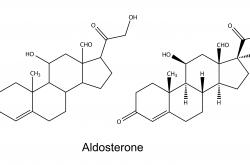

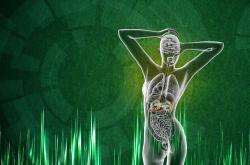


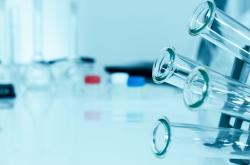
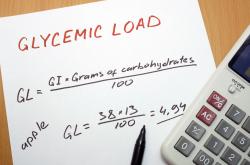
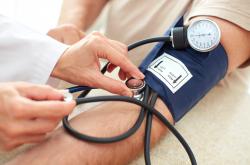



.jpg)



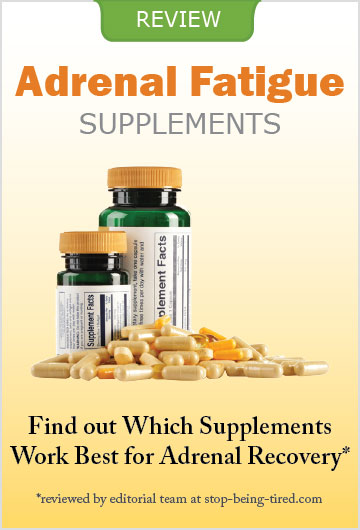
Leave a comment